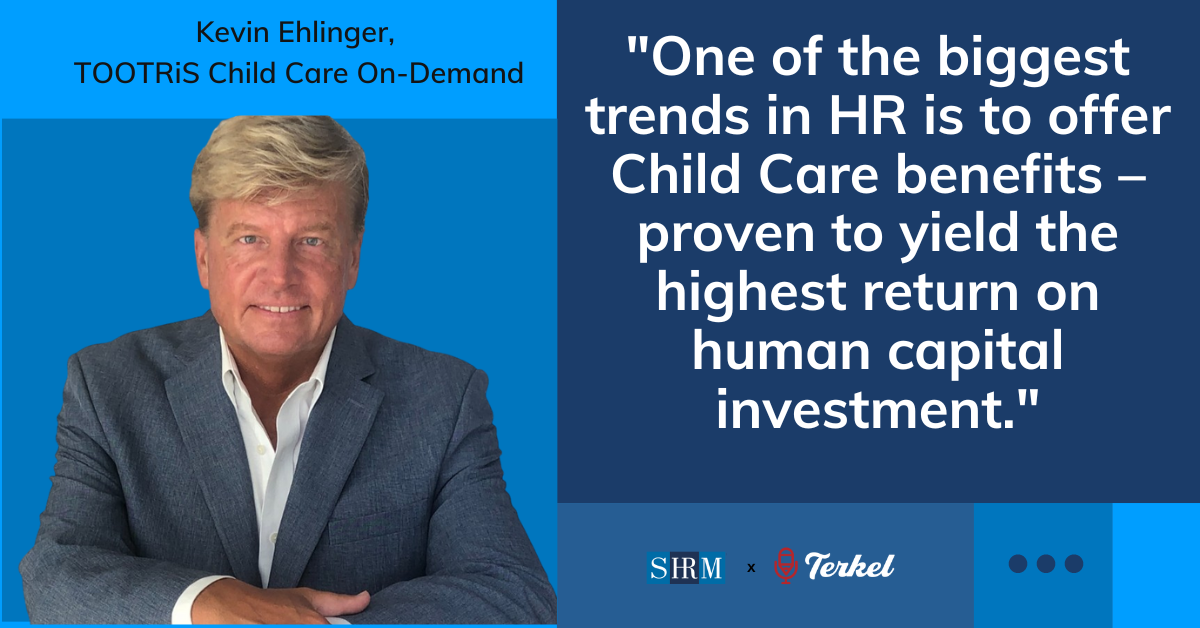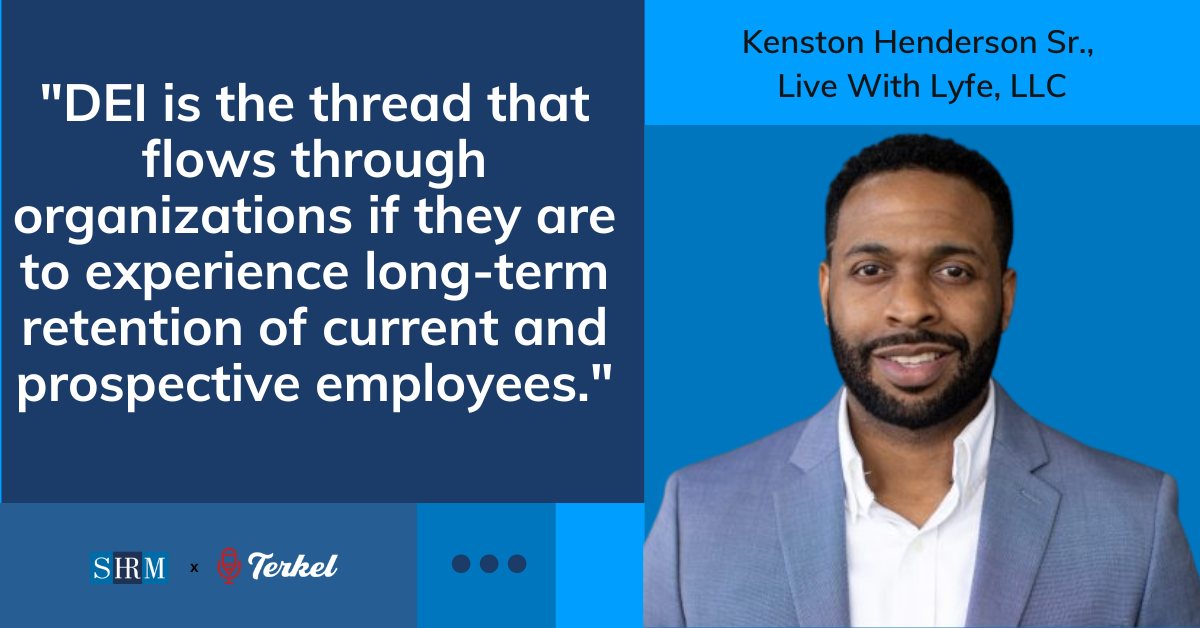What is the biggest trend HR is facing and will face in the future?
To help you recognize the biggest trends facing HR, we asked small business owners and HR leaders this question for their best insights. From adopting remote work policies to transitioning into a culture of trust, there are several HR trends to be aware of for 2022 and beyond.
Here are 12 of the biggest HR trends in 2022:
- Adopt Remote Work Policies
- Practice Fair Chance Hiring for Those with Criminal Records
- Shift Toward a People-First Culture
- Prioritize Social Media and Brand Awareness
- Offer Child Care Benefits
- Retrain Employees to Overcome Competition
- Listen to Employees’ Needs
- Hire Based on Soft Skills
- Introduce DEI Into the Workplace Culture
- Demand to Hire and Attract Great Talent
- Retain Valuable Employees
- Transition Into a Culture of Trust
Adopt Remote Work Policies
While some employees will prefer working from an office, many more have discovered over the past two years that they are happier and more productive working from home. If we don’t offer this level of flexibility, it will drastically impact our ability to attract, retain and engage talent. We’ve seen companies announce their return to office plans and the ensuing backlash from their employees in the media; it is clear that our employees feel that they are more productive without a commute, forced socialization with coworkers, and cubicle walls.
Jessica Miller-Merrell, Founder, Chief Innovation Officer of Workology
Practice Fair Chance Hiring for Those with Criminal Records
With the rise of diversity, inclusion, and equity practices, there’s a high likelihood that fair chance hiring practices will slowly reduce and abolish the stigma and outdated practices that exclude incarcerated applicants from being given the opportunity to be considered and hired for positions. More and more employers are keen to embrace inclusive practices. This is not limited to ethnic and gender inclusion, but should also include individuals with criminal records.
Linda Shaffer, Chief People Operations Officer of Checkr
Shift Toward a People-First Culture
One of the biggest trends we will see is organizations continuing to shift toward a people-first culture and making it a business priority. With every new generation in the workplace comes a new set of best practices that changes our ideas around employee engagement, culture and our work environment. As every aspect of business continues to transform, one of the key things we need to do is create purposeful experiences in the office that deliver real value so that our direct, face-to-face interactions have meaning. What it really comes down to is that we need to actively listen to our workforce and ask them the right questions to understand their needs and concerns and then find ways to reignite their passion for their work and their profession.
Sarah Chavarria, Executive VP & Chief People Officer of Delta Dental of California and Affiliates
Prioritize Social Media and Brand Awareness
Social media and brand awareness tend to go hand in hand. Never before has HR been so tied into company branding strategies and how it affects employees, potential candidates, and the business itself. Sales and Marketing have always been in lockstep but HR now plays a role in this as well. Social media is here to stay, so the sensitivities around that must always be front and center for the whole organization. It is a bit of new world order and the tentacles of social media and branding run deep and in every direction to influence the business.
Debora Roland, Vice President of People Operations at CareerArc
Offer Child Care Benefits
Child Care is crucial for working parents and our economy; however, the majority of people can’t find or afford Child Care. This directly impacts companies with reduced workplace attendance and productivity.
Child Care has risen at more than twice the rate of inflation, causing some parents, especially women, to leave the workforce. This will continue to get worse unless companies support their working parents.
One of the biggest trends in HR is to offer Child Care benefits – proven to yield the highest return on human capital investment. This provides critical help to parents while giving companies a competitive edge.
Kevin Ehlinger, Vice President, Product Marketing of TOOTRiS Child Care On-Demand
 Retrain Employees to Overcome Competition
Retrain Employees to Overcome Competition
Reskilling and upskilling are crucial for businesses to continue being competitive, high-performing, and high-productive in the future. RH is now redesigning and developing new ways to retrain employees to bring the best levels of performance and productivity. The challenge is that market, or industry trends change fast, so discovering how to keep retraining in this scenario is essential. Not having reskilling and upskilling as part of the strategy will be detrimental to a company’s plans and policies.
Ricardo von Groll, Manager of Talentify
Listen to Employees’ Needs
HR leaders face many new trends these days. With turnover rates higher than ever and talent shortages widespread, HR (and other organizational leaders) must be listening to their employees’ needs and where possible, meeting those needs without retribution. When needs such as customized work hours and flexible work location are not met, talented employees will vote with their feet and exit an organization leaving the organization to suffer. With over 50% of households being dual working at this point in time, expectations and company policies are required to change in order for businesses to retain top talent and continue to survive.
Emily Golden, Founder & Executive Coach of Golden Resources, LLC
Hire Based on Soft Skills
There will be a 50% increase in independent workers by 2023. To manage the hybrid or remote working model, employers will need to change the way they track employee activity in order to maintain trust. When hiring a leader, “soft skills” will weigh significantly more. Social, emotional, and advanced cognitive abilities will be preferred over technical ones. A leader’s EQ will be measured in order to hire a person that can practice the “employee first” culture.
Christa Reed, Job Market Research Head of JobSearcher
Introduce DEI Into the Workplace Culture
The biggest trend HR is facing is performative DEI work. What was once a knee-jerk reaction to discrimination in the workplace, organizations are now intently listening to the sound of diversity, equity, inclusion…and belonging.
DEI is the thread that flows through organizations if they are to experience long-term retention of current and prospective employees. However, with organizations losing billions of dollars due to discrimination lawsuits, absenteeism, loss of productivity, and high turnover rates, companies are now willing to pay millions to mitigate racial bias and put in place strategic plans to create and cultivate racial equity and inclusion in the workplace.
With the future in mind, I firmly believe that the way we move DEI–from being just a hot topic and current trend–is to marry DEI conversations with strategic efforts about company culture; that is when true transformation can and will happen.
Kenston Henderson Sr., Chief Empowerment Officer of Live With Lyfe, LLC
 Demand to Hire and Attract Great Talent
Demand to Hire and Attract Great Talent
The greatest trend HR is facing is the demand to recruit, hire, and retain great talent. Many companies are becoming quite competitive to attract great talent with unique perks, increased salaries, unique PTO options, work-from-home or hybrid options, title promotions, stock grants/equity, and much more.
While the market may slowly reset, it will take creative and unusual tactics to attract and retain great talent, from working with executives and board members to make large, company-wide changes, to making small hiring process changes such as decreasing the number of interviews, eliminating assessments, and becoming more direct with hiring managers to push the interview process through quickly and efficiently.
Terry Petzold, Managing Partner & Growth Officer of Fox Search Group
Retain Valuable Employees
Today’s employees have many options in front of them. Finding ways to retain your best employees takes commitments from organizations and leaders on many levels. Employees want and expect more frequent career steps and growth than in the past, and organizations need to build the systems and structures to deliver that.
Creating Cultures focused on developing skills and creating consistent career growth are key building blocks to a winning strategy. Companies should consider implementing automatic career steps and/or monetary rewards for hitting production/quality/tenure goals in newer employees to reward hard work rather than purely annualized merit-based reward systems.
Joe Scotto, Vice President, Human Resources of Equiliem
Transition Into a Culture of Trust
As companies continue to deliberate the right formula for remote work, the real solution lies with individuals, not the collective. One-size-fits-all will not fit anyone. Trusting employees to decide where, when and how work gets done increases well-being, productivity, and retention.
According to LinkedIn Talent Insights 2022, employees that feel their companies do a good job with flexibility are 2.6x more likely to be happy working at their company and 2.1x more likely to recommend that others work at their employer. This empowered approach emphasizes output over hours without sacrificing accountability. Articulating and communicating your stance on flexibility, in all its forms, is essential to attracting and retaining right-fit candidates in today’s tight labor market…trust me.
